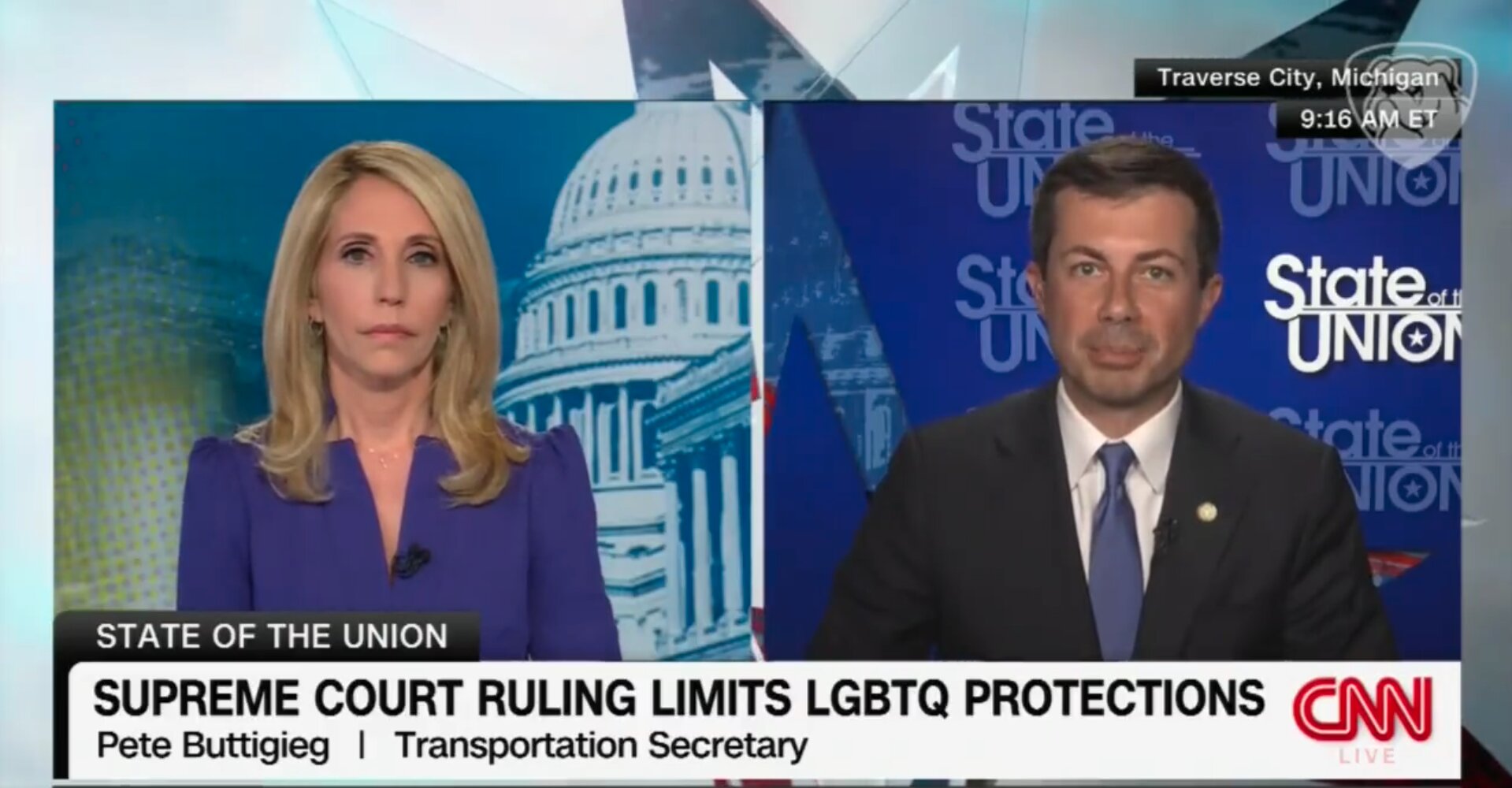Transportation Secretary Pete Buttigieg is suggesting the web designer involved in a Supreme Court decision sought to spark the case.
During an appearance on CNN Sunday, Buttigieg discussed the case involving web designer Lorie Smith and whether she could refuse to do work for same-sex couples. The court ruled the First Amendment allows Smith not to do work that would endorse messages she disagrees with.
“I think it’s very revealing that there’s no evidence that this web designer was ever even approached by anyone asking for a website for a same-sex wedding,” the transportation secretary said.
He continued, “Matter of fact, it appears this web designer only went into the wedding business for the purpose of provoking a case like this.”
Buttigieg went on:
“I think there’s something in common between this Supreme Court ruling and what we’re seeing happening in state legislatures across the country, which is kind of a solution looking for problems, in other words, sending these kinds of things to the courts and sending these kinds of things to state legislatures for the clear purpose of chipping away at the equality and the rights that have so recently been won in the LGBTQ+ community.”
Do you think Buttigieg is right?
Watch the video below:
https://twitter.com/KevinTober94/status/1675548280892129280
As NBC noted, “Smith, whose business is called 303 Creative, told NBC News she has always been drawn to creative projects but also has strongly held beliefs that ‘marriage is between one man and one woman — and that union is significant.'”
“Smith sued the Colorado Civil Rights Commission and other state officials out of concern that she could be sanctioned under its antidiscrimination law that bars discrimination on the basis of sexual orientation in public accommodations, although she has not been sanctioned yet. Lower courts ruled against Smith, prompting her to appeal to the Supreme Court,” it added.
Justice Neil Gorsuch wrote in the majority opinion that Colorado’s antidiscrimination law cannot be enforced to require business owners to endorse ideas they disagree with.
“The opportunity to think for ourselves and to express those thoughts freely is among our most cherished liberties and part of what keeps our Republic strong,” Gorsuch wrote.
All six conservative justices sided with Smith, while the three liberal justices dissented.

























 Continue with Google
Continue with Google